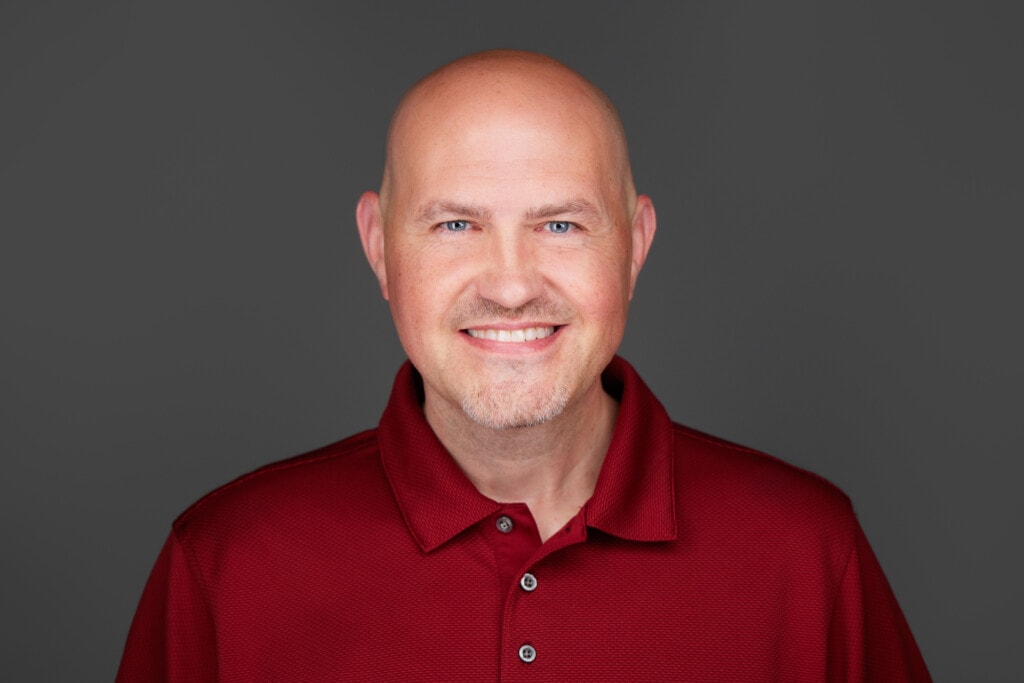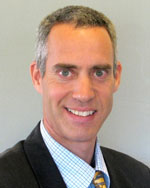
I met Lane at the Medtronic Diabetes Advocate Forum last Spring. He made quite an impression on me.
Have you ever met a person who is so smart that they exude inspiration? That’s Lane Desborough, Product Strategist at Medtronic Diabetes. His son, Hayden, was diagnosed with type 1 diabetes in August of 2009.
As Lane did his first presentation, he talked about many parallels between the complicated field of process control chemical engineering in oil refineries and the like, and the complicated field of diabetes management. It sounds crazy, right? But no more than six hours into his son’s diagnosis, he started seeing those similarities & parallels.
I wanted to follow-up with Lane to learn more, and was able to ask him a few questions via e-mail.
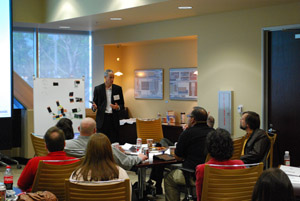
Scott: Can you briefly describe your role at Medtronic Diabetes? What exactly does “Product Strategist” mean?
Lane: This role was created specifically for me (not the first time in my career this has happened) with all credit to John Mastrototaro, VP of Pump and Closed Loop R&D. I met John at the Diabetes Technology Meeting in October 2009 and now have the privilege of working for him.
The role was patterned after that of a chief engineer at Toyota, well described here http://scottbellware.com/2008/12/chief-engineer.html
Qualities of a Chief Engineer at Toyota
- A visceral feel for what the customer wants
- Exceptional engineering skills
- Intuitive yet grounded in facts
- Innovative yet skeptical of unproven technology
- Visionary yet practical
- A hard-driving teacher, motivator, and disciplinarian, yet a patient listener
- A no-compromise attitude to achieving breakthrough targets
- An exceptional communicator
- Always ready to get his or her hands dirty
I am far from having any of these qualities today; but these are my aspirations and I now have the tremendous fortune to apply my skills and experience – such as they are – to a domain which has huge personal and societal impact: improving the lives of people with diabetes.
What does product strategist mean? One way of looking at it is that there’s a general tendency to start with product-based businesses “selling a widget / exchanging ownership of a physical good”, then transitioning to service-based businesses “selling an experience”, and ultimately to outcome-based business “selling a result”. My aspiration is to understand and deliver improved outcomes; outcomes which I broadly classify as “reducing glycemic variability”, “increasing lifestyle flexibility”, and “reducing therapy effort”. As such, I tend to look at how various products and services can work together as a system to provide these outcomes.
I like to think that the fact that I go home every night and experience glycemic variability, lifestyle constraints, and therapy effort as part of a family with diabetes helps me focus my engineering efforts to improve these outcomes. I joined Medtronic because today Medtronic has the most comprehensive set of product and service “building blocks” to deliver on these outcomes. I was also influenced by the fact that through the Stanford trial, my son’s been wearing a Medtronic pump, CGM, and using Carelink since ten days post-diagnosis. To paraphrase Victor Kiam, “I liked Medtronic devices so much, I joined the company!”.

Scott: How far into your son’s diabetes were you when you joined Medtronic Diabetes?
Lane: Hayden was diagnosed with type 1 diabetes on August 28, 2009 and I joined Medtronic on April 19, 2010 – 234 days or ~ 8 months. The elapsed time was due to a number of personal and work factors. John recently admitted to me that he knew from the day he met me that I would one day be working for Medtronic.
Scott: At what point into your life with diabetes (through your son) did you start to see similarities or parallels with your background in previous professional roles?
Lane: About six hours. I got a call at 3pm to come to emergency at our small local hospital in rural Nevada. Hayden was diagnosed with T1DM shortly thereafter and after stabilizing him with insulin we were able to take him to the ICU at a bigger hospital an hour away, arriving at 8pm. Sitting by his bedside that first night was when I first began to see the similarities. I formed a mental list that night and when I got home the next day I googled the ideas. The papers I found on google were authored by people that I knew; fellow process control chemical engineers. That’s when I knew my prior experiences might be relevant.
This was solidified 7 days later when Hayden was admitted to Stanford University as a part of a clinical trial which used a Medtronic-provided closed loop control system to bring him quickly under tight glycemic control. My son’s blood glucose was being controlled by a PID controller, a technology I’d first applied in the late ’80s!
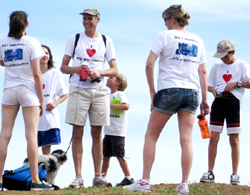
Scott: What was it like to experience revelations around the tricky job of trying to regulate blood sugars and tackling similar challenges in your professional duties?
Lane: Some have argued that chemical plants are the most complex “systems of systems” ever created by mankind. I think the human body’s complexity transcends any plant I’ve ever worked in, however many of the techniques are still directly applicable.
My prior domain of chemical plant control had the same four basic ingredients as life with diabetes: humans, hazards, software, and feedback. Other domains like aviation have these four elements too. Software-intensive automation in hazardous complex sociotechnical systems can be approached with the same broad techniques. There may be different levels of maturity of sensors, final control elements, experimental design techniques, models, control algorithms, regulatory regimes, etc, but the fundamentals remain the same.
I think this can be summarized by a quote attributed to William Gibson which I use almost daily here at Medtronic: “The future is already here, it just hasn’t been evenly distributed yet”.
I like to say that I’m a fundamentally lazy person; why reinvent the wheel? An hour in google can save a decade of research. I like to stand on the shoulders of giants. I’m not doing anything special or innovative here. I’m just helping to distribute the future.
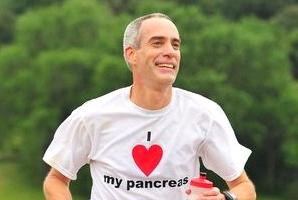
Scott: I was fascinated to hear about even broad similarities between chemical engineering and diabetes management. Were you surprised to find similarities?
Lane: I was initially surprised by the similarities, now I’m surprised when I spot the occasional difference. We’re miniature chemical plants at the end of the day. Extremely complex, time-varying, nonlinear chemical plants.
Chemical engineers – and aerospace engineers before them – have developed robust techniques to approach an unknown system, define control objectives, perform experiments, develop models, predict future behavior, and develop safe and effective control, then operate that control for decades.
The first controller I implemented (proportional integral derivative or PID) was at a chemical plant in the late 80’s. It’s still operating today. The last controller I implemented (model predictive control or MPC) was at a very dangerous, very complex plastic plant in 2007.
All I’m doing now is applying the same techniques to the most important chemical plant ever.
Scott: Thanks Lane – I can’t express how much I appreciate all that you do!
Lane says that he sees an approximate 20 year head-start in the development of automation concepts from the chemical engineering world to the biomedical engineering world, and that aviation engineering probably has an additional 20 years on chemical engineering.
I’m personally very intrigued by the idea that so much can be learned, and applied to us, from people like Lane and others in his field. It also opens my mind to ideas that we may learn more yet from unexpected domains.
There are a couple of great blogs posts with Lane at Medtronic’s “The Loop” site. I encourage you to go check them out. A couple of my favorites are “What Control Means to Engineers” and “Living with Diabetes: Meet Lane”
My blog post does not do Lane’s brilliance and inspiration justice. If you ever have a chance to meet him, hear him speak, read something he’s written, you should jump all over the opportunity.
**Disclosure: The Medtronic Diabetes Advocate Forum was held on April 1, 2011. Medtronic Diabetes paid for my travel, food, and lodging.

